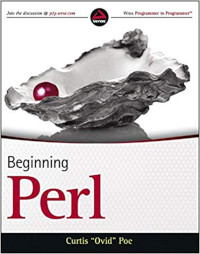Full disclosure: I just found out that because of my contributions to significant open source projects, I get access to Github Copilot for free. That being said, even before I realized that, I was using the free trial and I was impressed.
A few years ago, a client contracted with us to build out a system where they’d be automating many common tasks their people did. However, it was a political minefield. The employees thought management was trying to automate them out of jobs, so they were not always cooperative. Management insisted they were trying to free up employee time for more complex tasks, but the employees were suspicious.
Today’s AI revolution is having similar effects. People are losing their jobs to ChatGPT. Companies are turning to Stable Diffusion and other AI systems to generate images. And now Github Copilot is here to write code for us.
I tend to be a late adopter of software. It’s not that I’m a Luddite. I just prefer to focus on building things rather than learning the hot new technology du jour. But my explorations into ChatGPT taught me pretty quickly that if you’re willing to accept the quirks, AI can be an amazing tool. So I decided to give Copilot a try.
I use vim. If you have a different setup, you’ll need to hit your favorite search engine for instructions.
First, you’ll need neovim or a relatively recent vim and install the Github Copilot vim plugin . I confess that after two decades with vim, and having a highly customized vim setup, I was a bit nervous about whether or not Copilot was going to play well with my setup. There were a few slight bumps in the road.
First, I wanted to make sure Copilot was only active in certain filetypes. I
added the following to the bottom of my ~/.vimrc:
let g:copilot_filetypes = {
\ 'gitcommit': v:true,
\ 'markdown': v:true,
\ 'yaml': v:true,
\ 'perl': v:true
\ }
That gives me Copilot in git commit messages, markdown files, YAML files, and Perl.
If you have extremely large files, you may want to disable Copilot in those :
autocmd BufReadPre *
\ let f=getfsize(expand("<afile>"))
\ | if f > 100000 || f == -2
\ | let b:copilot_enabled = v:false
\ | endif
I was pretty sure that my auto-completion hack wouldn’t work, so I disabled that first:
" function! CleverTab() " I need to be cleverer
" if strpart( getline('.'), 0, col('.')-1 ) =~ '^\s*$'
" return "\<Tab>"
" else
" return "\<C-N>"
" endfunction
" inoremap <Tab> <C-R>=CleverTab()<CR>
Yeah, I should use a plugin for that, but I’m lazy. It worked for me.
Then I started playing around with Copilot, but for some reason, sometimes it
would show me the code it was suggesting, but when I hit “tab”, it wouldn’t
insert it. It was frustrating, until I remembered I had this in my
~/.vimrc:
noremap <leader>pp :set invpaste<cr>
I’m often cutting-n-drooling things into my editor, so I hit ,pp to toggle
paste mode. When I realized that, I knew I just needed to hit ,pp again to
let Copilot work its magic.
I’ve seen quite a few people talk about how Copilot is going to put programmers out of work, but I was pretty sure that while it could write simple code, it wasn’t going to be able to write code for complex business logic. I was sort of wrong. Copilot quickly picked up my style and if I named things intelligently, it often offered perfect suggestions. In fact, a few times it was offering suggestions that were better than what I thought of at the time. Humbling.
Of course, like ChatGPT and friends, Copilot is prone to hallucinations. It’s tried to write documentation for methods that don’t exist. It’s tried to write code calling methods that don’t exist. Sometimes it writes code that works, but has nothing to do with what I need. However, so long as I’m vigilant, I can catch those errors. And sometimes, it’s just a matter of hitting “tab” a few times to get the code I want.
This morning, I was working on an immutable ORM I’m building for a client. At one point, Copilot added the following comment to my code:
METHOD: foreach my $method (keys %methods) {
my $new_method = $self->metadata('columns')->{$method};
if ( $method eq $new_method ) {
# don't install methods if they already exist
next METHOD;
...
I chuckled at comment. It was code being used to auto-generate methods and of course I wanted to install those methods.
And then I read the comment again. That next METHOD; meant I’d be skipping
that method. I had a bug in my code and Copilot caught it for me. It was a
silly, obvious bug. I was knee-deep in a huge change that impacted 27 files and
tiny bugs like this are easy to miss. Thank goodness for tests, but doubly-thank
goodness for Copilot.
Did I say “humbling” already? Yeah, humbling.
And then what blew me away happened this weekend. I was porting the OpenSky API from Python to Perl. What I often do when porting code is to take the code and paste it into my editor as a comment and follow along while porting. I was using the following Python:
def get_flights_from_interval(self, begin, end):
"""
Retrieves data of flights for certain time interval [begin, end].
:param int begin: Start of time interval to retrieve flights for as Unix time (seconds since epoch).
:param int end: End of time interval to retrieve flights for as Unix time (seconds since epoch).
:return: list of FlightData objects if request was successful, None otherwise.
:rtype: FlightData | None
"""
if begin >= end:
raise ValueError("The end parameter must be greater than begin.")
if end - begin > 7200:
raise ValueError("The time interval must be smaller than 2 hours.")
params = {"begin": begin, "end": end}
states_json = self._get_json(
"/flights/all", self.get_flights_from_interval, params=params
)
if states_json is not None:
return [FlightData(list(entry.values())) for entry in states_json]
return None
As soon as I typed sub get_flights_from_interval, Copilot suggested this:
sub get_flights_from_interval ( $self, $begin, $end ) {
if ( $begin >= $end ) {
croak 'The end time must be greater than or equal to the start time.';
}
if ( ( $end - $begin ) > 7200 ) {
croak 'The time interval must be smaller than two hours.';
}
my %params = ( begin => $begin, end => $end );
my $route = '/flights/all';
my $response = $self->_get_response( route => $route, params => \%params ) // [];
if ( $self->raw ) {
return $response;
}
return OpenSky::API::Flights->new($response);
}
The only change I made to it was rewriting the error messages.
There are a two interesting this about this. One, it worked perfectly the first
time. Two, notice that $self->raw? That’s something I added to other methods
to return the raw data structures instead of objects. Copilot knew to add it
there.
Also, the Python code returns None if it doesn’t find anything, meaning that
you always have to remember to guard your code with an if check. My code
always returns an OpenSky::API::Flights object, but with an empty iterator
if there are no results. If you forget an if check, the consuming code will
still work. If you need to check if you have results, you can still call
$flights->count to see if anything is there. Copilot knew to add that, too.
Copilot is not only suggesting code, but accommodating my style.
To be fair, there are serious concerns about Copilot. It’s trained on code from a variety of sources, including code that is copyrighted. There’s an ongoing class action lawsuit as a result of this .
But rather go into a number of issues with Copilot, I’ll point to the elephant in the room: developers are going to lose jobs because of this. This technology is in its infancy and it’s already writing code that’s better than many developers I’ve met. As the technology matures, more and more developers will find that simply writing good prompts will take care of much of their work for them. Already I’m finding that Copilot is increasing my productivity, but at the same time, I need to be on guard for subtle bugs that it might introduce. Since I’m not writing the code, I risk not thinking about it as much as I should. Fortunately, I’m fanatical about testing, so this limits the risk.
But as more companies shift to tools like this, they’ll be looking at senior developers like myself, developers with decades of experience, and they’ll be asking themselves why they’re paying us so much when Copilot can do the work for them. Junior devs might be finding it easier to get work since they don’t charge as much money and I think it’s currently unknown if the quality of our software will improve as a result.
I don’t know what the future holds, but one part is clear: we’re getting closer to being able to describe our software and having it written for us.
Note: the OpenSky code I wrote using Copilot is available on github and the CPAN . I’ve already had one bug report (my bug, not Copilot’s) and I fixed it and released this morning, along with more tests.


